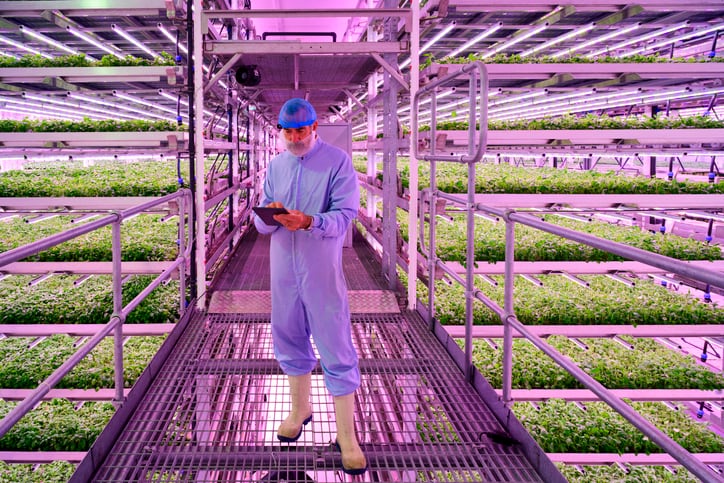Indoor farming start-up Plenty Unlimited has filed for Chapter 11 bankruptcy in the Southern District of Texas, citing financial pressures and unresolved contractor disputes.
The company plans to continue operating its strawberry farm in Chesterfield, Virginia, and its R&D facility in Laramie, Wyoming, while restructuring its liabilities.
Plenty had raised nearly $1 billion from venture capitalists and high-profile investors. Many believe its challenges highlight the disconnect between the expectations of VCs (who typically seek returns in 5-10 years) and the realities of Controlled Environment Agriculture.
“The collapse of high-profile vertical farms like Plenty, Infarm, and AeroFarms has exposed how poorly short-term, hyper-growth VC models align with an asset-heavy, margin-sensitive business like indoor farming,” says Henry Gordon Smith, the vertical farming and CEA expert and CEO at advisory firm Agritecture.
Private equity, infrastructure funds, and even family offices are often a better fit, he tells AgTechNavigator. “They’re typically more patient, value long-term asset development, and are comfortable with infrastructure-heavy investments that generate stable, albeit slower, returns. These investors tend to understand that building controlled agriculture systems is closer to building utilities than apps.”
Alexander Olesen, CEO and co-founder of Babylon Micro-Farms, which makes hydroponic indoor farming systems for businesses to grow fresh produce on-site, agrees.
“We were able to attract investors with a longer-term view and who are not traditional VC funds,” he says. “We have some VC funds involved but they are not our main investors.”
Early-stage venture funding has a place in the indoor farming, he says, “but when it comes to scaling it up, they should be treated like real assets. There’s a whole world a capital out there which hasn’t historically been available to vertical farming but could and should be important.”
The VC vertical has its place, Olesen states, but he stresses that the vertical farming and CEO sector needs more long-term capital to create “more success stories that can help it break out of this trough of disillusionment.”
Henry Gordon Smith’s advice for start-ups seeking funding:
- Treat funding strategy as core to your business model. Don’t chase flashy investors – find those aligned with your time horizon and mission
- Explore blended finance models. There’s increasing opportunity at the intersection of climate finance, public-private partnerships, and ESG-aligned funding
- Leverage grants early. Governments, especially in the UK and EU, still fund early-stage CEA tech through innovation programs and sustainability initiatives
Gordon Smith also believes it is a mistake to invest in a vertical farming company if there is not a farmer on the C-suite.
CEA and vertical farming companies can fuel growth without VC, he insists.
“It might be slower, but it will likely be more sustainable. Profitability is the new innovation.
“We’re entering a more grounded chapter for vertical farming – and that’s a good thing.”




